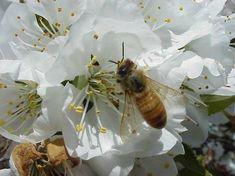
HortResearch New Zealand scientists are warning that there is likely be a major shortage of bees for pollination of export crops in the next 10 years.
“We are not predicting any problems in the short-term, over the next year or two,” said Dr Mark Goodwin, a honeybee scientist and pollination specialist at the crown research body, “but we have been looking at horticulture and how fast it is expanding. Potentially there could be a shortfall of some 70,000 hives in 10 years time.”
The research scientists have met with stakeholders from all the major sectors of horticulture in New Zealand as well as the agricultural authorities to present their research and identify a way ahead. Key crops relying on bees for pollination are kiwifruit, top fruit and avocados.
“Kiwifruit could be pollinated artificially, with people picking flowers, extracting the pollen and then spraying it, or blowing it back onto crops,” said Dr Goodwin. But this method is not suitable for many other crops including top fruit. “The problem in New Zealand is that fewer people are interested in coming into agricultural pursuits so we need to encourage people back into bee-keeping,” warned Dr Goodwin.
New Zealand is also having to face up to the varroa mite which affects bees. In other parts of the world, varroa has become resistant to control products, although this is not the case yet, New Zealanders are expecting resistance to develop. The cost of hives has risen dramatically over the last couple of years from NZ$80 each to NZ$140 this season, reflecting the expense of trying to treat varroa. “With costs having risen, suddenly the cost of artificial pollination look like a more viable commercial option for kiwifruit,” said Dr Goodwin.
Stakeholders have now set up a pollination industry working group to address the problem and agree a way ahead. The issue has taken on greater urgency since the discovery of varroa on South Island recently. The island has a significant vegetable-seed industry and the NZ government is considering whether to try and eradicate - rather than simply control - the disease on the island.



